Insights from Indigenous elders from our community in the Solomon Islands
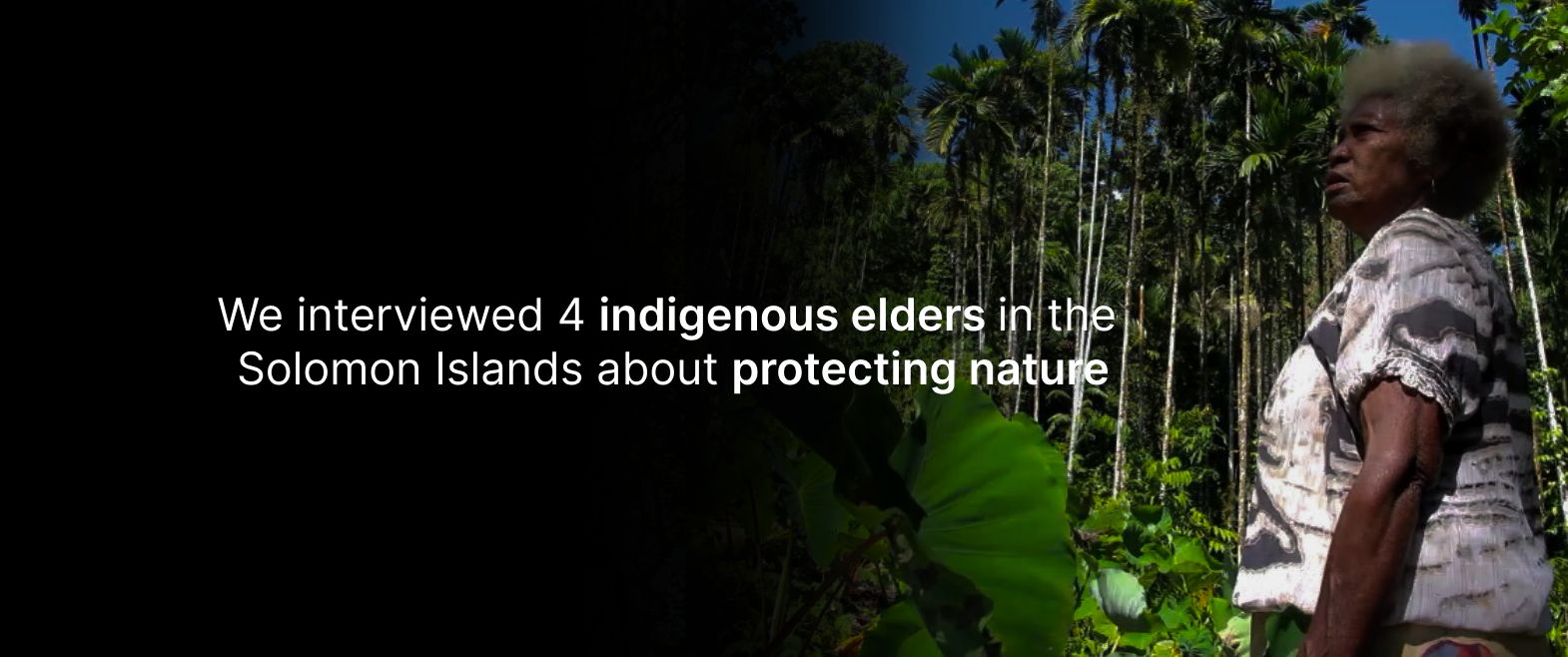
At Native Squared, we believe that Indigenous guardians are the world’s most important protectors of nature as they are the caretakers of 80% of the planet’s remaining biodiversity. Their deep connection to land and sea is not only cultural, but spiritual, woven through generations of stewardship, knowledge, and resilience.
In the Solomon Islands, our community partners have safeguarded over 60,000 hectares of pristine rainforest, a living ecosystem rich in endemic species and ancestral wisdom. For generations, these communities have nurtured a relationship with nature that is rooted in balance, respect, and responsibility.
In this feature, we sat down with local elders from these communities to listen to their stories of guardianship, their reflections on change, and their hopes for the generations to come. Through their words, we glimpse what it truly means to live in harmony with the land and how Indigenous leadership holds the key to a more sustainable future for all.
Flory Dingari
Elder at Ferafolia Community, West Kwara’ae Highlands, Malaita
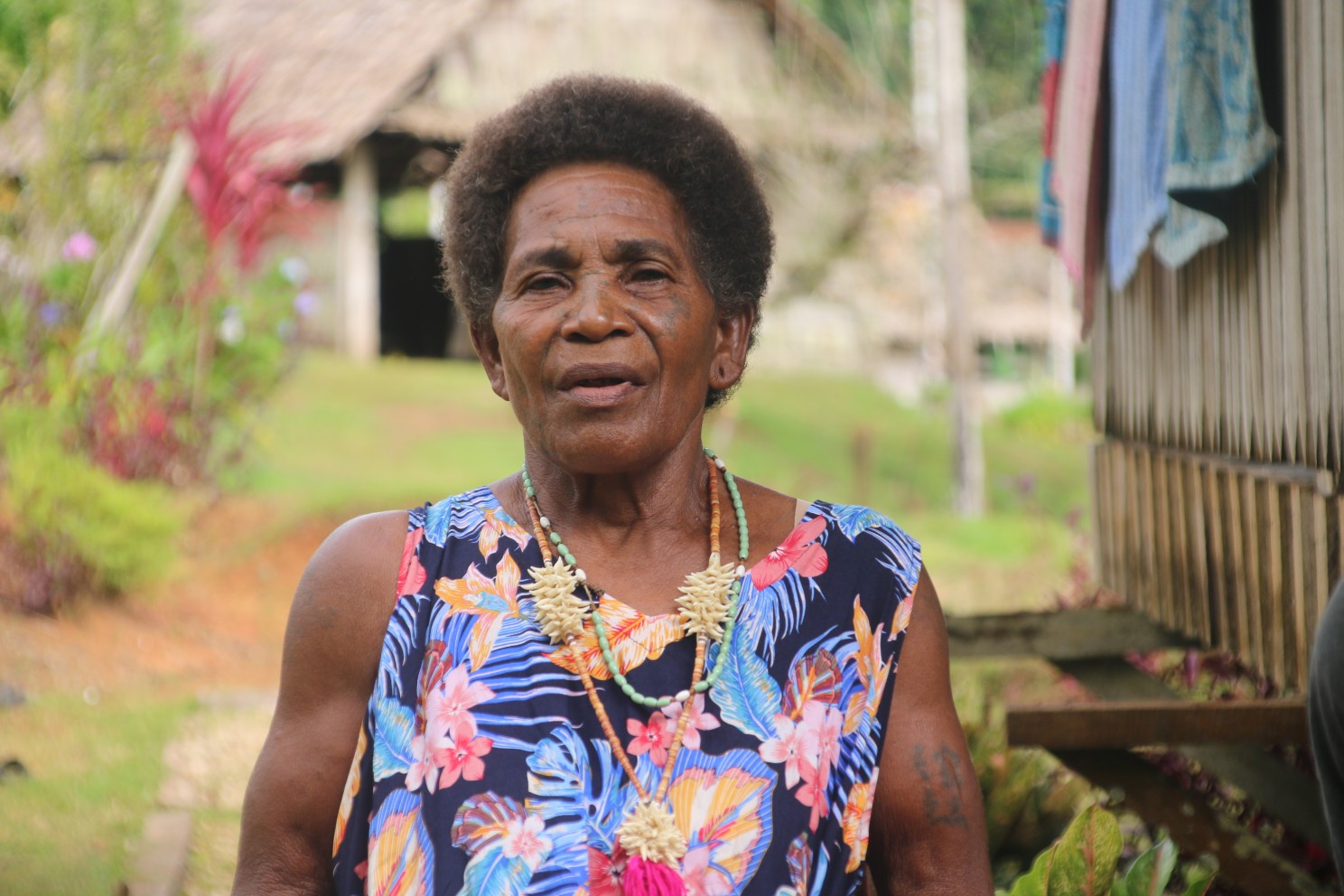
Q1: What motivates the Ferafolia Community to look after their environment?
“The reason why we look after our environment is for it to provide our needs and wants in the future because today we are already looking after it well. If we do not, children of the future will be deprived of the benefits from a clean and wholesome environment such as clean air and clean water.”
Q2: What are the benefits to the community by looking after our environment?
“Looking after our environment ensures we continue to have our needs satisfied through clean air and clean water, access to resources which also means our children in the future will not inherit a degraded environment that will only harm them.”
Q3: What can be done to help other surrounding communities also protect their environment?
“We will need to lead by example. We also have a relationship with our surrounding communities; we will also need to work together with them so that we can all come up together sharing our responsibilities for a common future for all our children.”
Michael Totoe
Elder at Ferafolia Community, West Kwara’ae Highlands, Malaita Province
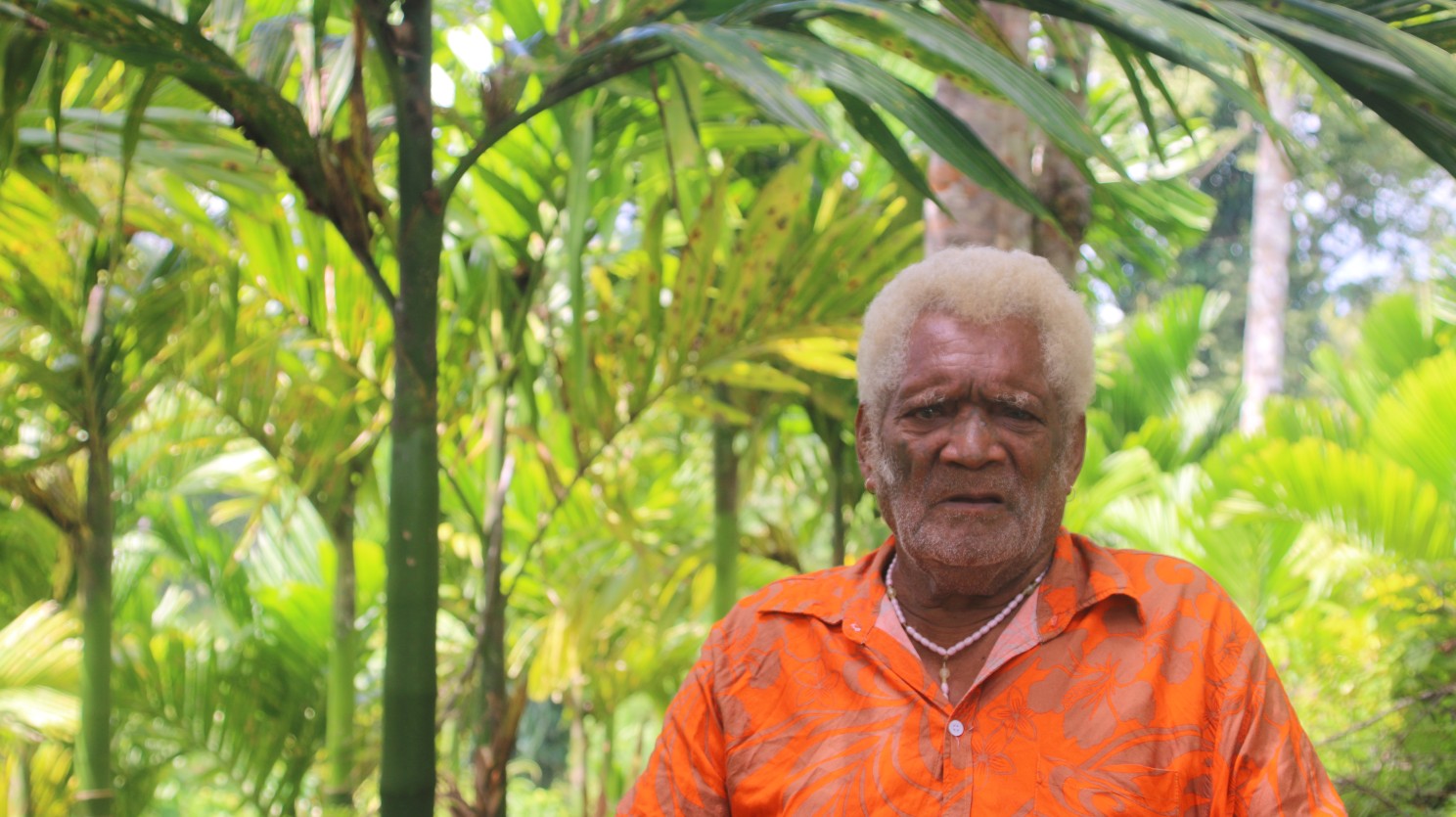
Q1: What motivates the Ferafolia Community to look after their environment?
“Our environment is created by God. None of us created the environment. It has been gifted to us. In that sense, we must look after a gift. Our environment provides the land, fresh air and the wildlife. If we destroy the forest, the wildlife will die. Many will disappear and may never come back again. We have to care for the environment because it gives us life. If we remove the forest and the wildlife, our future generations will look for these things.
Also, because we have finite land, it is important for us to be good stewards and managers of the resources. If we destroy it, it will be gone for ever. Therefore we owe a responsibility to our future generations to protect the environment today.”
Q2: What are the benefits to the community by looking after our environment?
“If we look after the finite land resources, it will continue to provide for us trees that give us fresh air. It also provides for us our material needs such as sago palm, vines, bamboo and other materials for building our homes which cannot grow on dry and infertile land. The environment, forest and wildlife doesn’t take one day to develop but over many years so if we destroy it today, it will take a very long time to replenish itself. It is therefore wise to look after these things well today.”
Q3: What can be done to help other surrounding communities also protect their environment?
Destruction of the environment arises out of lack of understanding. We call it blindness. People do not realise that if they continue to extract and not allow regeneration nature will reach its natural limit and shut down. That is what causes the abuse of the environment. Awareness and information is therefore important. We have to inform our neighbours and also educate them about the consequences of unsustainable harvesting. It is also true that there are financial flows from the natural resources. But if people do not realise that there can be financial flows from the land, no one will attach value to the land. It may be the case we who see the vision for protecting the environment and have been doing it for a long time need to educate our neighbours to do the same. Neighbours seeing them will in turn educate their neighbours and so on. Everyone wants something good. If we demonstrate that this is a good way to live, they too can do the same thing for their people and land.
Cecilia Takana
Elder at Ferafolia Community, West Kwara’ae Highlands, Malaita Province
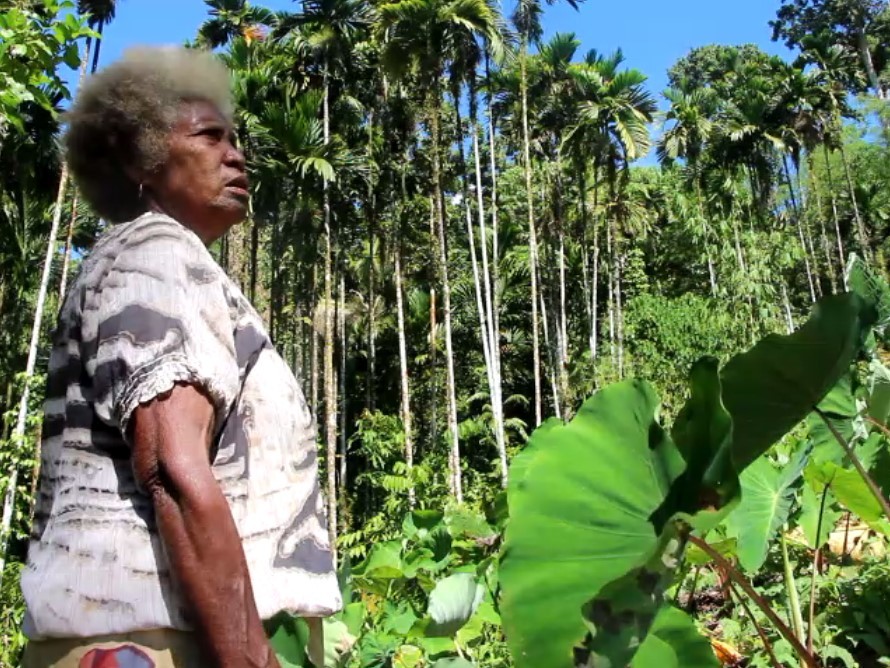
Q1: What motivates the Ferafolia Community to look after their environment?
“The reason why we care for our environment and nurture it, and do not cut trees, vines and other materials indiscriminately; and look after our land and resources is because nature provides us possibilities. We live off nature. It produces clean, fresh air for us to breath, clean water for us to drink and all that we need for our lives. Nature gives us many of the things we need for our survival. Therefore we must look after nature, so that it will continue to produce these services.”
Q2: What are the benefits of preserving the natural environment?
“How we benefit from the environment is the clean air generated from a healthy environment and good drinking water. We also are healthy and do not get sick because we have a healthy environment. Nature provides us many possibilities for a good life. Places that have damaged their environment, as we have seen, no longer have access to these good things. If we look after our natural surroundings, we will not be deprived of any of these services, but we will continue to enjoy nature’s bounty for a long time to come.”
Q3: How do you help other communities around you also protect their environment?
“We can only teach by example. If we live harmoniously with our environment, respect it, care for it and enjoy the symbiosis between humans and nature, our neighbours cannot help but be impacted by the story and learn from it as well. They too will realise that it is wise to protect their land, forest and surroundings because these things will nourish them.”
Fred Ialaua
Community Elder at Ferafolia Community, West Kwara’ae Highlands, Malaita Province
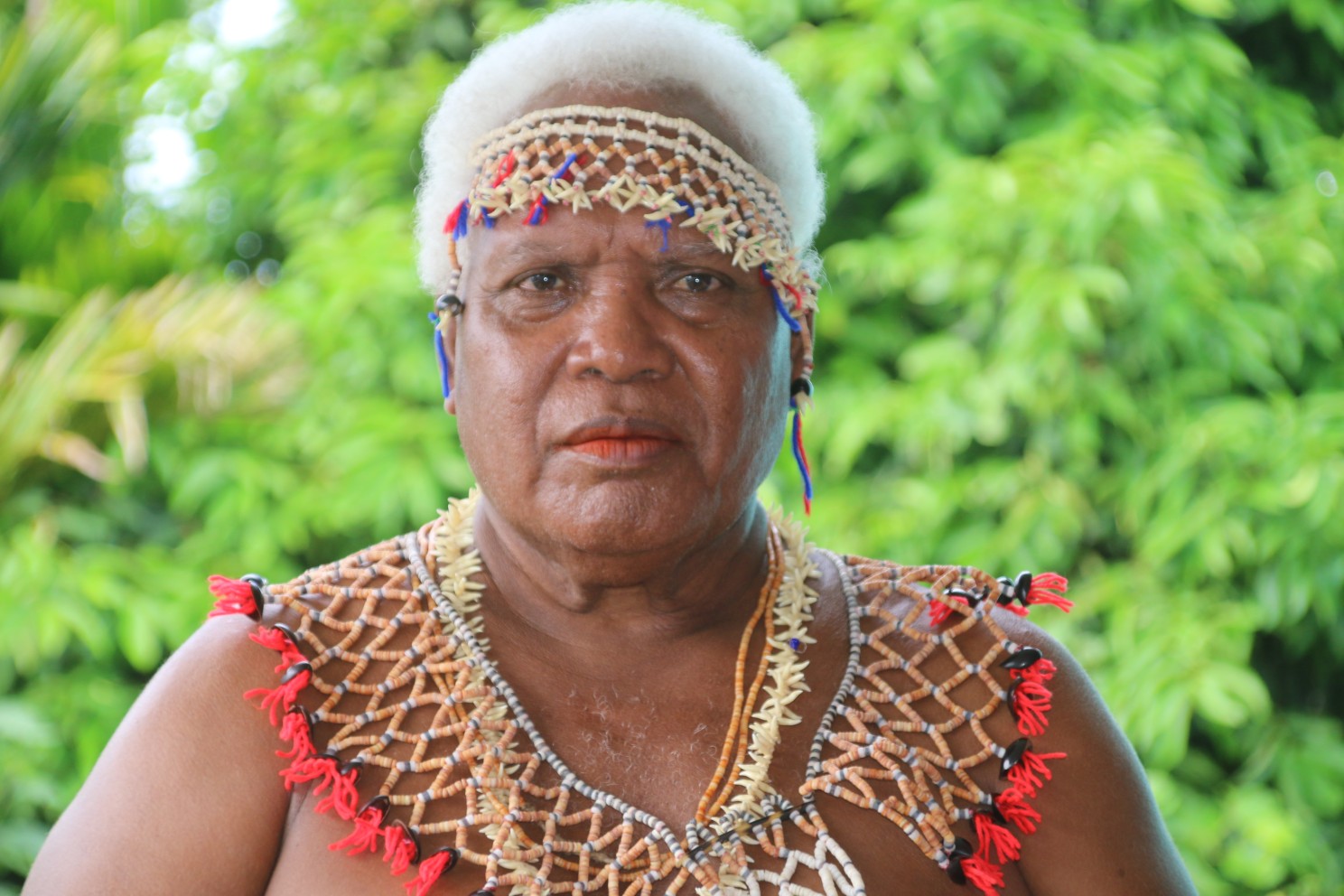
Q1: What motivates the Ferafolia Community to look after their environment?
“Nature taught us a hard lesson. Over the generations, we learnt that when we destroyed our environment and do not care for it we pay a heavy price. We ended up drinking from polluted streams, we do not have biodiversity, no birds, animals, no medicinal plants, no cool and refreshing breeze, no building materials such as trees, bamboos and vines and an infertile soil. Surprisingly, we still see communities around us that destroy their land and resources who continue to suffer the same fate. Today, the Ferafolia Community is very happy with the services that we get from having the environment around us protected and preserved. We have fresh and refreshing water, fresh air, cool breeze, the birds and wildlife have their place, we have medicines readily available from nature and we have plentiful of materials for construction available to us. We are also motivated by our future generations. We want to prepare their heritage for them. Just like we received an inheritance from nature, we also want to pass down that same inheritance to the generations that come after us.”
Q2: What are the benefits of environment management for Ferafaolia?
“We have many benefits from environment management at Ferafolia. First of all, we have clean air so that we are able to breathe clean and fresh air and enjoy the mountain breeze. Secondly, we drink clean and fresh drinking water. Third, we have available access to services provided by nature. We have access to timber and bamboo. We also have an understanding of taking only the things we need and leavig the rest in the forest to continue to re-generate. Fourth, we also get benefit from the fertile land through food that has been planted, and we also get money from sale of our food to others. The benefit of conservation is life. We are not enemies to the organisms on the land and the forest. Nature is a source of life for our generation and those that come after us. We don’t harvest indiscriminately. We care for it so that life is preserved through it. It provides good water, air and a good life.
The rivers provide us with fish, prawns and other sources of protein. We don’t use chemicals in harvesting the rivers that pollute our rivers. We use natural techniques. We have received these services from nature. We want that pathway to life to continue. Not to damage the environment, the birds and animal life. We have a relationship with our natural environment and we want to keep it that way. We share the same space with the plants and animals of the place. Up to now, we appreciate the environment. We prohibit destruction of our environment. We know this to be the right approach. And we want our children and their children to also do the same. To keep the systems that gives us goodness to this day.”
Q3: What is required to get other communities to do the same?
“For other communities to be able to do the same, their leaders need to educate and bring awareness to their respective people and communities. We need to start by acknowledging our reckless disregard of the environment that has brought us the negative consequences that we are seeing today. Leaders, both men and women must speak up, organise and order their communities. Where needed, they must correct and guide their people to understand why reckless attitude to the environment is wrong and not in their best interest.
Second, they must provide information and awareness about the impacts of destroying the land, forest, rivers, streams and the environments. People must know that destroying nature carries a cost to us.
Third, where necessary leaders must lead their people to start replanting trees where trees had been removed and soil degraded. They can start along the river-banks to bring the rivers back to life. People must stop overharvesting the rivers and stop using chemicals to harvest prawns, ill-fish, fish and other products from the rivers. They also need to start managing the harvest of products of the forest such as trees, bamboos, vines and not to harvest without thinking. This is so that the goodness of the environment will return to meet their needs. They have to look after the territorial and the marine environments.
Fourth, they must consider managing their land. People should be able to plant food in smaller plots and leave other areas of the forest standing. Where they don’t need to cut down, they must leave it. Do not allow logging into their lands. Do not allow mining into their lands. These activities will damage their land and forest.
We should not be surprised when our land is not fertile, when we do not have access to trees and natural resources. Rivers and streams are polluted. Many of our communities are already experiencing this. But for communities to return to the place of plenty and provision, leaders must take charge. They have to work with those they lead to organise, to plant trees, to plan for their land and bring back the ability of the land and forest to provide services.”
The message from these conversations is clear and timeless “when we protect nature, it protects us in return.” The forests give us clean air, the soil nourishes our food, and the oceans sustain our lives. This reciprocal relationship, one that Indigenous communities have honored for generations, is the foundation of true sustainability.
Listening to the voices of the Solomon Islands’ guardians reminds us that protecting nature is not just an environmental act, it’s a cultural and moral one. Every tree preserved, every reef cared for, is a promise to future generations to live in balance with the world that sustains us all.
If you share this vision and want to be part of the movement to protect our planet’s natural and cultural heritage, visit www.nativesquared.com to learn how you can get involved.
Together, we can help Indigenous guardians continue their vital work and keep the spirit of these forests alive for centuries to come.
